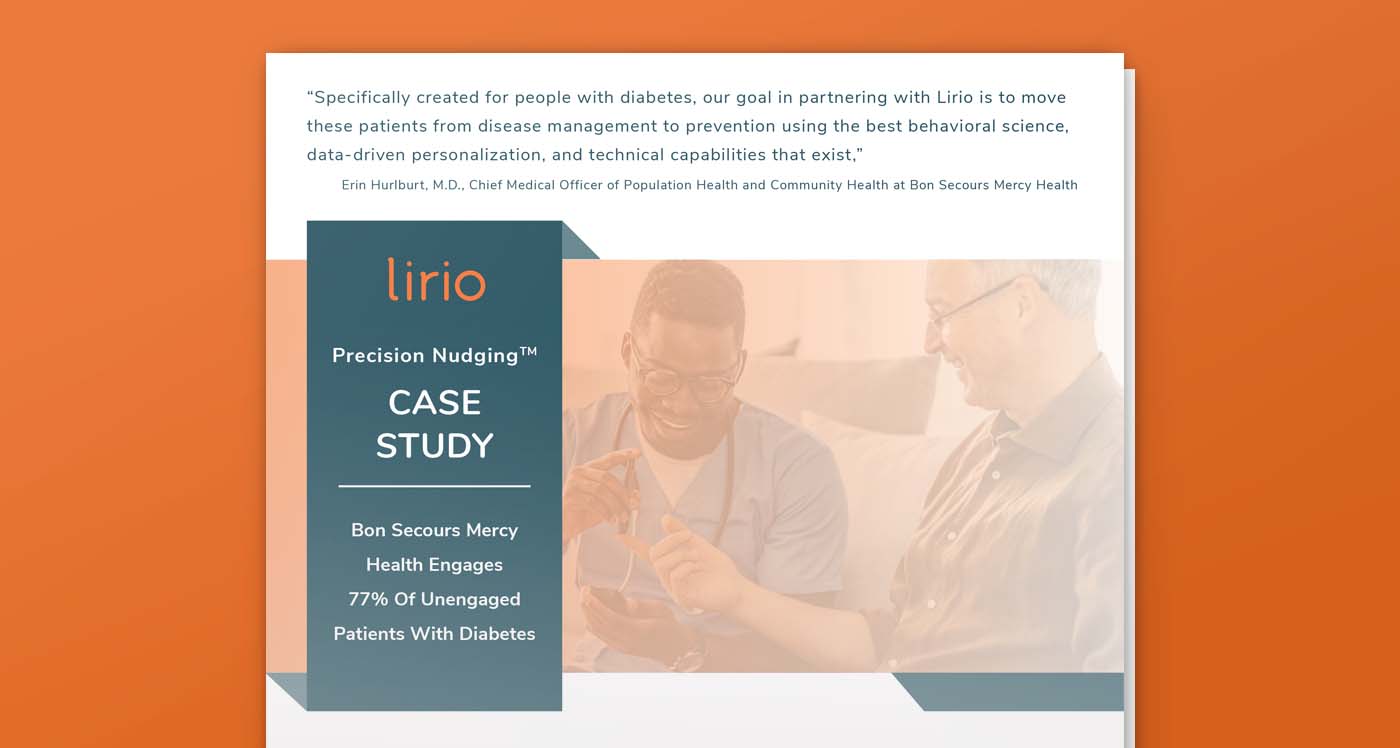

The Great Debate: Are Nudges Effective, and What Are Nudges Anyway?
Over the past few months, there has been much ado about behavioral nudges and their effectiveness in moving people to change their behavior. One of the leading voices in this conversation, Dr. Michael Hallsworth–Managing Director, Americas for The Behavioral Insights Team (BIT)–joins Lirio’s Chief Evangelist Patrick Hunt for an exploration of the essence of nudges in the current context, and the arguments for and against their use.
TL;DR? It depends.
Whether nudges are effective first depends on a shared definition of nudges. There’s hardly consensus in the industry on exactly what a nudge is, so we’ll start there. Then we’ll dive into the makeup of a behavioral nudge and discuss key elements of nudges and their impact on effectiveness. Finally, we’ll review some of the scientific findings of nudges, and what more needs to be done determine their place, if any, in motivating behavior change. We’re not likely to end the debate on the effectiveness of nudges, but we’re certain to have an informative discussion about where to go from here.
Questions and comments from our audience are highly encouraged! See you soon.
About Michael Hallsworth
Dr Michael Hallsworth is Managing Director of BIT Americas. He has been a leading figure in developing the field of applied behavioral science, having authored several influential frameworks such as the MINDSPACE report (which has been cited more than 1,600 times to date). His work has been published in, among others, The Lancet, the Journal of Public Economics, and Nature Human Behaviour. He is the author of the book Behavioral Insights (MIT Press, 2020).
Before his current role, Michael led BIT’s global work on health and tax for five years. Michael was previously a Senior Policy Advisor in the Cabinet Office of the UK government, Assistant Head of Behavioural Change at the UK tax authority, a Senior Researcher at the Institute for Government, and an analyst at the RAND Corporation.
Michael has a PhD in behavioral economics from Imperial College London, and a First Class MA and MPhil from the University of Cambridge. He has been an Assistant Professor (Adjunct) at Columbia University and an Honorary Lecturer at Imperial College London. He is an Advisory Board member at the University of Pennsylvania’s Center for Social Norms and Behavioral Dynamics.
Watch On-Demand
Explore Lirio

Case Study: A Top 20 US Health System Moves 87% of Unengaged Patients with Diabetes Toward PCP Visits
Managing diabetes and the related co-morbidities requires consistent physician care to monitor key factors like A1C and ensure proper medications are available to the patient. One of the largest health systems in the US partnered with Lirio to co-develop a Precision Nudging™ solution utilizing hyper-personalized patient communications for people with diabetes.

What Vaccine Hesitancy Can Tell Us About Nudging People to Better Health
Behavioral interventions targeting vaccine adoption, which we designed for a Louisiana health system, have implications for any behavioral intervention aimed at improving and sustaining health behaviors. I recently had the opportunity to share the lessons we learned at a meeting of the Virginia chapter of HIMSS.

Stick to the Point: Personalization at Scale Drives Vaccination Uptake
